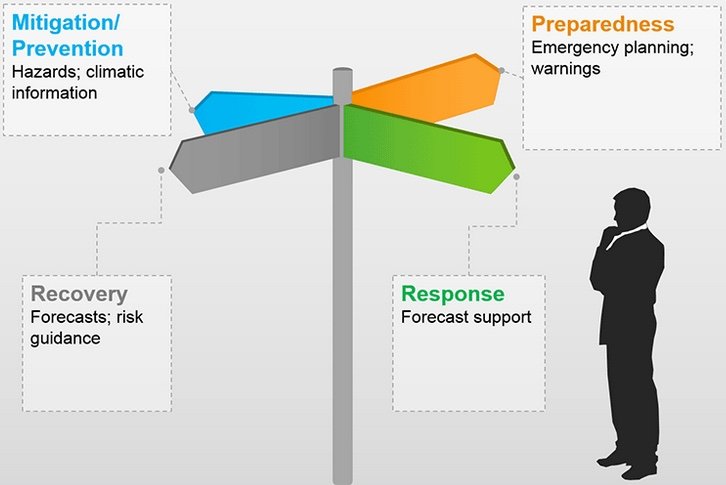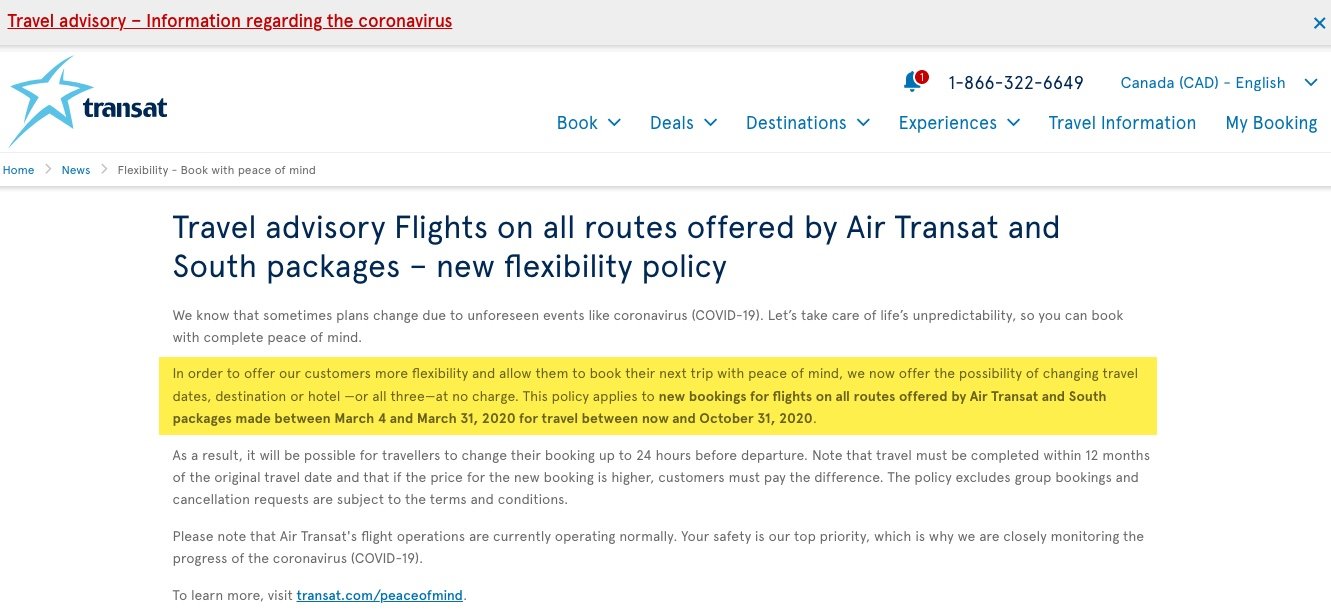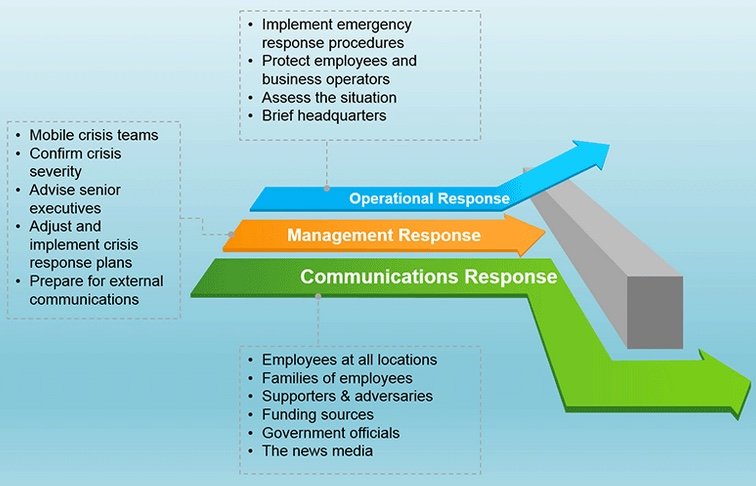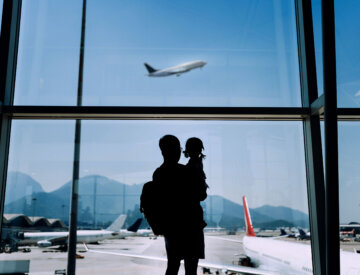The way things have been unfolding in the past couple of weeks, it was just a matter of time before the World Health Organization (WHO) declared the Covid-19 outbreak a pandemic. This is now official. So now what?
As a travel industry marketer with over 25 years experience in the game, I thought I would share a couple of insights and thoughts of my own.
It’s like SARS all over again
20 years ago I was working for VIA Rail Canada promoting travel (by train) coast to coast within our beautiful country to passengers booking through international tour operators and wholesalers based in Australia, Japan, South Korea, USA, Brazil, France, UK, Belgium, Germany, etc.
Those were glorious times, when Canada even peaked in 7th position worldwide in the ranking of most popular destinations.
Then came the horror and tragedy of 9-11 in New York City in 2001. North America was no longer the safe place it was once perceived to be.
And then came SARS in 2003. Canada was now no longer safe, but for completely different (perceived) reasons.
You see, SARS was a deadly disease – also a coronavirus – that originated in Hong Kong where over 700 people died. The other place that got hit hard? Toronto, with 43 dead. It was almost the only other place that got whammed, besides Hong Kong, yet our whole country suffered the consequences as travel was not recommended to Canada, not just the city of Toronto.
I recall full well getting emails from inbound receptive agencies in Vancouver cancelling groups of Japanese travelers, for example, set to travel between Montreal and Quebec City. Same with French groups, and Brits. In many cases, these groups had shifted their travel plans to Northeast USA. We would tell them: you realize some of the cities you will be visiting are actually closer to Toronto than Montreal or Quebec (or even Vancouver, for that matter)?
It was useless.
And this was before social media and all the fake news that circulates today…
What should we do now?
There were a couple of things we learned from the SARS crisis back in 2003 that can definitely apply today, given the global context.
Have A Plan
It’s a bit late for this if you don’t already have a crisis management strategy in place, but it’s never too late. Having a plan means identifying the scenarios that could impact your business, and how you might respond. Right now, we can certainly observe how governments have been responding in China, Iran, Italy, India or even South Korea to get a better understanding of what will most likely happen in North America in coming weeks, for example.

Having a plan also means identifying who has authority within your company, your brand, your hotel or your destination, to speak with media. How much flexibility does your community manager have in responding to customer questions and questions on social media and review sites?
Be Flexible
When ITB-Berlin was cancelled last minute two weeks ago, many hoteliers chose to apply their strict cancellation rules. That did not necessarily sit well with many industry insiders who may think about some hotel chain twice next time around.
However, we are now seeing many airlines, hotel chains and cruise companies putting forth incredible flexible conditions to book without cancellation or modifications fees, in order to reassure customers should they change their mind (as they may very likely to if things get worse before they get better).

With international travel, bookings tend to take place many weeks and months in advance, so there is a real conundrum for hospitality brands right now: apply strict cancellation rules or be flexible. For some companies, with considerably less cash flows stemming from this crisis, it may be a question or do or die.
But if travel brands can be flexible – there are government discussions taking place as we speak, both in Canada and the USA, to help tourism organizations – this will ensure travel to return swiftly once the outbreak is no longer a threat.
Communicate, Communicate, Communicate
In times of crisis, communicating is key. Some folks contend that it’s better to talk less, listen more, while others believe it’s better to over-communicate than under-communicate. The ideal scenario, as you may guess, it somewhere down the middle.
In fact, it’s not about communicating more, or too much. It’s more about making sure you identify the target audiences, the proper channels and then act accordingly. You should also have a priority, or hierarchy, in your external and internal communications. Nothing worse for employees to find something out about their own company via social media or while discussing with a customer over the phone!

I have been advocating for years on this blog the importance of having a mix of communication channels: website, blog, newsletters, social media, forum, etc. It’s in these moments you can appreciate having these tools in order to get the message across regarding updates to your policy, or any other important communication you may have to share.
Stop Advertising & Promotions
Times of crisis such as this one are a perfect moment to stop and re-think some of your ongoing initiatives. When it comes to ads and promotions, you may as well stop altogether since you are fighting an impossible, uphill battle. This is true for destinations (DMOs) and travel brands alike: hotels, restaurants, cruise lines, attractions.
After the terrorist attacks in New York back in 2001, many hotels deeply discounted their rates in hope of quickly stirring interest with international tourists. Not only did it not work, it became even more difficult to get back to regular rates once things came back to normal. A similar phenomenon occured with hoteliers in Toronto after SARS.
The best thing to do in such cases? Lower your sails. Let the storm pass.
Oh, and you may want to take a look at ongoing posts and/or scheduled posts. Like this one, seen by a friend on Facebook earlier today. Like, really? 50 things to do in Asia before you die? Of what, coronavirus, perhaps??

Then you will have to reconsider which channels will provide the best return on your investment in a context where everybody will be vying for the same travelers. Google Ads? Facebook Ads? Video creation for YouTube and other social media? Working with influencers? Sending out targeted emails with customized offers?
All good ideas that will need to be prioritized according to your business goals when getting out into recovery mode.
Plan For The Recovery
Last but not least: plan for the recovery stage! I know, this may seem to run counter to the previous point but in fact it doesn’t. Now is certainly not the best time to promote crazy deals but eventually folks will want to travel, and some folks will need to travel for business or to attend conferences.
What will your action plan look like when optimism returns? Will you do things on your own or will you jump on coop opportunities provided by your DMO, your trade association or local Chamber of commerce?
While your staff is not as busy, should you let them go temporarily or rather invest in them with ongoing training to expand skill sets? Could this crisis become an opportunity to address pressing matters such as renovations that were put on hold?
Anyway we look at this situation, the picture doesn’t look great right now. But things will eventually come back to normal – with perhaps some longstanding effects – and people will travel again, as we have always done. We need to be ready to jump out of the gate when the time comes!
“Travel is fatal to prejudice, bigotry, and narrow mindedness, and many of our people need it sorely on these accounts.” ~ Mark Twain
Related Posts via Taxonomies
- Social Media Best Practices in Travel Marketing [New Book]
- Online Reviews Remain Important For Travel Brands [INFOGRAPHIC]
- How Football Can Stir Destination Marketing…
- Design Tips For More Effective Newsletters
- The Importance of Email in Hotel Marketing [INFOGRAPHIC]
- 5 Tips To Rock Google My Business
- Social Media Best Practices in Travel Marketing, 2018 Edition [EBOOK]
- Google, Facebook and Travel Reviews
- California Dreaming… With Hostelling International









Thank you, Frederic, I enjoyed reading this article. I am an interior designer in the hospitality industry, with 20 years’ experience, trying to plan ahead and your mention of the opportunity to address refurbishments that were pressing prior to the pandemic is nothing less than sensible, as layouts and design concepts can easily be worked on remotely.